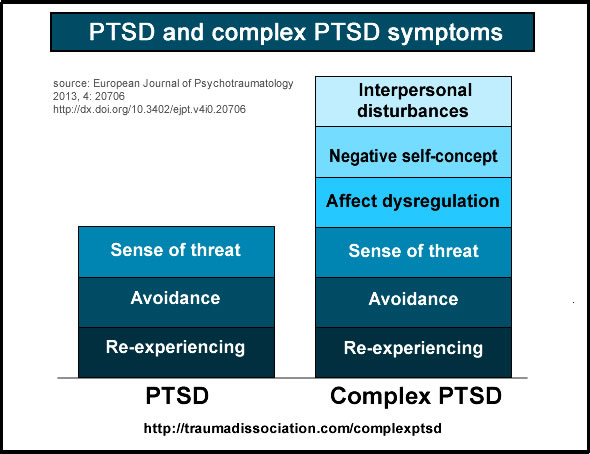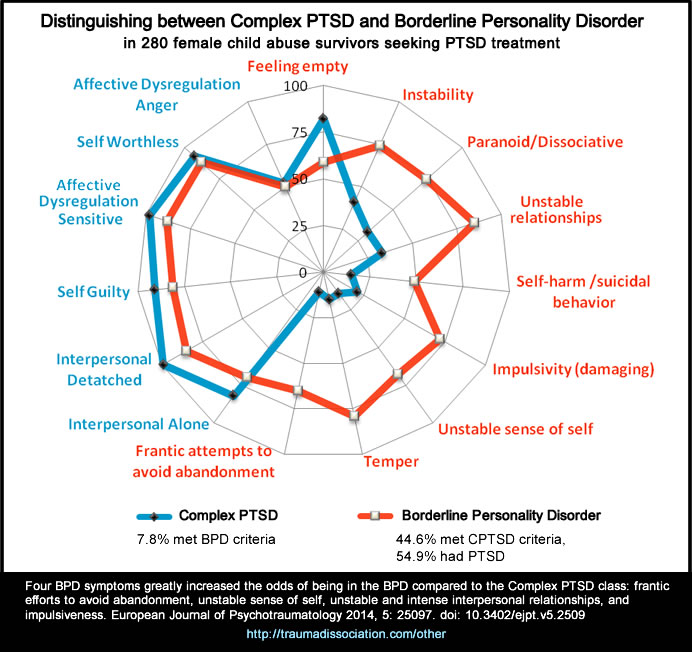Known in Psychiatry’s Diagnostic and Statistical Manual (DSM) – the “bible of psychiatry” which originates from The United States of America (not all countries of the world agree with a lot of it) and features the diagnostic criteria for all (that they deem to be) Mental Illnesses. The DSM is the work of “a small working group of psychiatrists with little to no oversight” (Dr. Nial McLaren) the American Psychiatric Association, for better or worse.
Within all disorders in the DSM, what is focused on here are what have become well known as the Axis II Cluster B Personality Disorders. Included in this diagnostic category up until the DSM 5, were, Histrionic Personality Disorder, Borderline Personality Disorder, Narcissistic Personality Disorder, and Anti-Social Personality Disorder (Sociopath or Psychopath). Cluster B personality disorders are characterized by dramatic, overly emotional or unpredictable thinking or behaviour.
There have been some changes in the current edition of the DSM 5 – the most significant of those was the removal of Histrionic Personality Disorder from the Cluster B Personality Disorders. The reason given was that they felt it had too much over-lap with Borderline Personality Disorder and/or Narcissistic Personality Disorder. Most agree that while Histrionic Personality Disorder (HPD) is not an official DSM 5 diagnosis anymore that does not mean it still does not exist in people who manifest the difficulties this presents in their lives and in the lives of those around them in often attention-seeking, selfish, highly dramatic and abusive ways.
There are now 10 defined and classified Personality Disorders in the DSM 5. They are divided into the categories below. The main focus on this site is the Cluster B (Dramatic, Erratic) Personality Disorders named below. This is the group of personality disorders associated with causing for those close to them or in relationship or having been in any type of relationship with them as having been a victim of Narcissistic Abuse. You will find some information and blog posts about the other categories of personality disorders as well.
Narcissistic Abuse
“DSM-5 lists ten personality disorders, and allocates each to one of three groups or ‘clusters’: A, B, or C
Cluster A (Odd, bizarre, eccentric)
Paranoid PD, Schizoid PD, Schizotypal PD
Cluster C (Anxious, fearful)” Source:
Cluster B (Dramatic, erratic)
Borderline PD, Narcissistic PD, Antisocial PD, Histrionic PD,
- Borderline Personality Disorder
- Narcissistic Personality Disorder
- Anti-Social Personality Disorder
- Histrionic Personality Disorder
 This image above is from the website marked at the bottom of the image. Permission granted to use as long as sourced.
This image above is from the website marked at the bottom of the image. Permission granted to use as long as sourced.
Reference: Cloitre, M., Garvert, D. W., Brewin, C. R., Bryant, R. A., & Maercker, A. (2013). Evidence for proposed ICD-11 PTSD and complex PTSD: a latent profile analysis. European Journal of Psychotraumatology, 4(0). doi:10.3402/ejpt.v4i0.20706 Read more
What is Complex PTSD after BPD, NPD and/or ASPD Abuse?
Complex PTSD Symptoms
Interpersonal problems includes social and interpersonal avoidance (avoiding relationships), feeling distance or cut off from others, and never feeling close to another person. Negative self-concept involves feelings of worthlessness and guilt. While survivors of PTSD may feel “not myself”, a survivor of Complex PTSD may feel no sense of self at all or experience a changed personality; a few may feel as if they are no longer human at all (Lovelace and McGrady, 1980; Timerman, 1981).[1]:385-386.
Believing yourself to be “contaminated, guilty, and evil” is commonly reported by survivors of Complex PTSD. A fragmented identity is common, with Dissociative Identity Disorder occurring in some people. [1]:386 Interpersonal sensitivity includes having feelings which are easily hurt, anger/temper outbursts and difficulties with interpersonal relationships. Complex PTSD is normally the result of interpersonal trauma, the long duration of the trauma and the control of the perpetrator(s) prevents people from expressing anger or rage at the perpetrator(s) during the trauma; anger and rage both at perpetrators and the self can only be fully expressed after the trauma ends. Prolonged abuse normally leads to a loss of previously-held beliefs, with feelings of “being forsaken by both man and God”. [1]:382,386
Affect dysregulation means being unable to manage your own emotions, and is often referred to as “difficulties with emotional regulation”. The unexpressed anger and internalized rage resulting from the trauma may lead to self-destructive or reckless/risk taking behaviors, e.g., self-harm and/or suicide attempts, which may be driven by a sense of self-hatred. [1]:382, [6] People with Complex PTSD also meet the diagnostic criteria for PTSD, which are: a persistent sense of threat, e.g. hypervigilance and being easily startled avoiding reminders of the traumas, and re-experiencing or reliving the traumas, for example flashbacks and intrusive thoughts about the trauma. In addition to the symptoms above, survivors of prolonged child abuse have an increased risk of both self-injury and repeated victimization, for example relationships with abusive people, sexual harassment, and rape. [1]:387
Judith Lewis-Herman, who first proposed Complex PTSD as a separate diagnosis, stated: Observers who have never experienced prolonged terror, and who have no understanding of coercive methods of control, often presume that they would show greater psychological resistance than the victim in similar circumstances. The survivor’s difficulties are all too easily attributed to underlying character problems, even when the trauma is known. When the trauma is kept secret, as is frequently the case in sexual and domestic violence, the survivor’s symptoms and behavior may appear quite baffling, not only to lay people but also to mental health professionals. The clinical picture of a person who has been reduced to elemental concerns of survival is still frequently mistaken for a portrait of the survivor’s underlying character.”
CPTSD and BPD are not the same disorders. Each has overlaps with the other but when someone has been diagnosed with BPD that’s not the same as a diagnosis (From ISD 11 not DSM 5) of CPTSD – CPTSD is described as having an onset in childhood by Judith Herman and Pete Walker – not onset due to an adult relationship with a person with BPD, NPD, HSP, or ASPD.

I would add to the above that while there is now consideration being given or perhaps it’s already been published in this other diagnostic manual that people with BPD (not sure about NPD) could be diagnosed instead with Complex PTSD does not at all mean that those diagnosed with it after abuse from those with Borderline Personality or any Cluster B Personality Disorder are at all the same. What it seems to mean to me is that people with BPD in a different way and time in a person’s life exposed to the trauma that their abuse of you inflicts upon you, has similarity with what originally happened in early childhood to those with BPD. It is the woundedness in the form of unacceptable abuse of those with BPD that leaves those who were abused with a lost self and emotional reactivity, along with many other devastating psychological symptoms, suffering, and incredible pain of what I have long referred to as BPD-by-proxy. BPD-by-proxy is not at all the same as having BPD but you might not recognize yourself emotionally, psychologically, after having been abused by someone with BPD, NPD, and/or ASPD. Their abuse changes who you are. I don’t want anyone to read the above and come to the a mistaken understanding that you, after Cluster B abuse are truly at all personality disordered. You are not. However, you may in some ways feel, react, and appear to be similar to the person that abused you until you get the treatment and professional support you need to heal and recover. You can and will heal and recover as you focus more, again on yourself, and get back in touch with yourself, who you were before all the trauma of the abuse from someone with BPD, NPD or ASPD. They wound as they have been wounded. People who are abused by Cluster B personalty disordered may then have some similar issues for very different reasons as the person who abused you.
People who have a (diagnosed or an undiagnosed) cluster B personality disorder drastically effect the lives of any and all they are close to or associated with. This category of Personality Disorders includes the most abusive people anyone could encounter. People with a Cluster B Personality Disorder in the ways that they behave, treat others, and are often very abusive lacking emotional maturity and age-appropriate behaviour and relational skills. In the case of Borderline Personality Disorder, people also feel everything so intensely that they have a lot of difficulty regulating their emotions. Triggered easily and often to emotional dyregulation those with Borderline Personality Disorder (BPD) are known for their chaotic and unstable relationships, believing what they feel is “real and happening” as opposed to knowing how one feels is how one feels, our reality is not at all only shaped by what or how we feel. This following of emotions – intense and often dysregulated emotions by those with BPD is known as “magical thinking” though it is not truly thinking at all. People with BPD are also known for idealization alternating with Devaluation – commonly referred to as “Splitting”.
Even though Histrionic Personality Disorder was dropped from the DSM 5 that does not mean that people do not still have this constellation of personality traits and a very sensitive temperament that still means they are living with this whether psychiatrists eliminate it on paper or not.
This results in this abuse from all Cluster B personality disorders (most, not all, who have them) being referred to, known as and defined as Narcissistic Abuse. Narcissistic Abuse now has its own category on this website with may posts and videos on the topic.
© A.J. Mahari, May 26, 2017 with an edit on January 25, 2025 – All rights reserved except for links above sourced and copyright Psychology Today and the above named website: traumadissociation.com

